Student Blog
Life Hacks
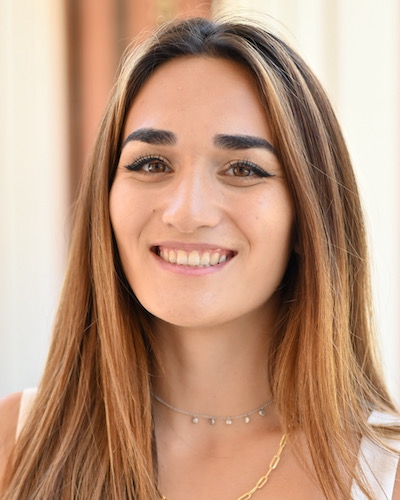
Tips to Survive OT School ⟩
January 29, 2023, by Leah Mary
Classes Life Hacks
1. Study with friends at the library, café, or home
As they say, misery loves company! But in all seriousness, studying with my friends was the number one thing that helped motivate me to study. It was a great way for us to have hands-on practice for labs (like transfers or motor control), quiz each other, or ask questions. My favorite places to study are Dulce, Doheny Library, and the USC Village.
2. Visit office hours
Whenever I didn’t know something or was anxious about a test, I always went to open hours. Our professors want us to go to those office hours. They structure it in an engaging way, especially when there are multiple students. This is an excellent chance for you to answer other students’ questions with the confirmation of our professors.
3. Kahoot
I used Kahoot for every test in the Entry Level Master’s Program. Classes like OT501, OT538, OT534, and even the Comprehensive Exam, Kahoot was a great study tool to help me conceptualize topics, create questions, and understand big-picture ideas.
4. Microsoft OneNote for note taking
Imagine having multiple color-coded binders that classes, topics, and weeks can organize but all on your computer. I knew I was overwhelmed with the number of courses, PowerPoint slides, research articles, and loose papers we get during the program. Having one application to organize everything made it easier to study and later use during my fieldwork and residency.
5. PDF Expert for the iPad
During the program, there were some classes where I liked to type my notes and others that I wanted to handwrite. PDF Expert is a free application that allows you to download your PDF slides to your tablet, write directly on the slides, and save them on your computer.
6. Gym shoes
Especially for classes such as Adult Rehabilitation and Motor Control, gym shoes are a must for optimal ergonomic support. Both Adult Rehabilitation and Motor Control labs involve lifting and practicing transfers with patients and students. Therefore, wearing the proper shoes is essential for your overall physical health.
⋯
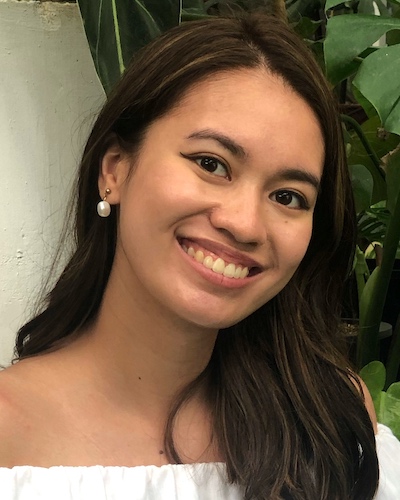
These Are A Few Of My Favorite Things ⟩
January 21, 2023, by Mika
Housing and Transportation International Life Hacks Living in LA School/Life Balance
Hello again and Happy New Year, my friends!
I wanted to start off the year with a blogpost about one my favorite childhood songs from the movie, The Sound of Music. If you have watched the movie, you might have remembered the scene where Fräulein Maria comforts the children amidst a storm. She tells them (or rather, sings to them) that whenever she feels scared or sad, she remembers her favorite things to help herself cheer up. Now, as a material girl, I kind of used this coping strategy as well to help me adapt to life here in Los Angeles. With that, I present to you some of my favorite things or must-have’s that helped me the past months.
1. Water Filter Pitcher
Moving to a new country requires you to find ways on how locals get their basics, like food or water. Based on the suggestions of some friends and family living in the States, they recommended me to get the Brita water filter pitcher. So far, I don’t have any problems with this brand that I bought; however, you can also opt to buy cheaper brands. These water filters also come in different sizes (even in a dispenser) and are available in local supermarkets like Target and Walmart.
2. Tide Pods
This has been a game changer for me doing laundry since it makes everything more efficient and quicker. This was not a common product back at home so when I discovered this, I really felt like a caveman discovering new technology.
3. Sink Garbage Disposal Unit
Okay, this device got me shouting U.S.A., U.S.A.! to my friends back at home LOL. Again, we don’t have this technology so I was happy to discover this in most American households since it made washing the dishes more convenient.
4. Air Fryer
This is not new technology for me but it definitely helped me save time in cooking meals in between studying. Shoutout to my lovely roommate for sharing this with all of us in the apartment!
5. Tabo (Dipper)
The Filipino in me is definitely showing with this one. I definitely cannot do my self-care occupations or other household chores without my beloved tabo or dipper. Although you can purchase these through Amazon or in Filipino supermarkets, I was able to buy a portable one (it was made of a rubber-like material so I could fold it to fit in my luggage) back home in the Philippines.
6. Dustpan
From what I understand, most locals use vacuum cleaners to clean their floors. However, I like to go Filipino old school and use a broom and a dustpan to clean some of my floors. For those who prefer cleaning this way like me, I wanted to share that I bought a detachable dustpan back at home and brought it here since most of the dustpans here were hand-held and quite-small, which often triggered my back pain when cleaning.
7. Mobile Applications
I found several mobile applications that had made my stay here in L.A. more convenient. Here are a few I found helpful:
- Ride-sharing apps like Uber and Lyft
- Public transportation apps like Transit and Tap
- Online shopping apps like Amazon (As a student, you can get Amazon Prime for free for 6 months!)
- Food and grocery delivery apps like Door Dash, Uber Eats, Amazon Fresh and Wee! (an Asian grocery delivery application)
- Yelp to find recommendations of places to eat around the area
- USC Gateway mobile app to help you know everything that’s happening in campus and to navigate your university life
8. Gifts (and snacks!) from home
Moving out of your comfort zone to a new country will bring about bouts of homesickness and loneliness from time to time. That is normal — it’s okay not to feel okay sometimes! To help me get through those moments, I’m blessed to have a good set of family and friends who sent some gifts and snacks to help me remember home. It definitely also helped that social media made keeping in touch with them possible!
And that’s the end of my list! What about you, what are your favorite things that get you by?
⋯
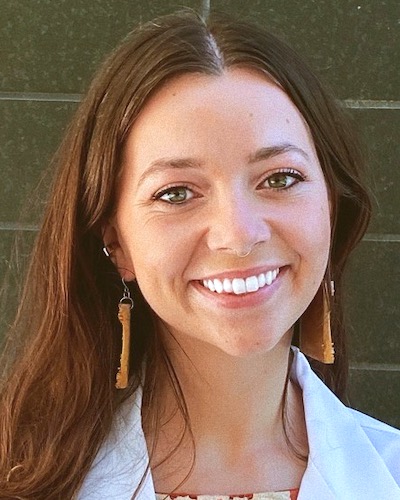
Finding Housing in LA When Moving from Out of State! ⟩
January 9, 2023, by Leah
Community Housing and Transportation Life Hacks Living in LA
While from Northern California, I had been living in Seattle, WA for a few years before moving to LA for USC.
Things I considered when looking for housing in LA
Cost
While there are plenty of benefits to living in Currie Hall (convenience / community aspect of living around a lot of other OT students) I thought it was too expensive for my budget. I wanted to find something more affordable in the East LA area. I paid $860/month the first year and now $950/month (boo inflation) but I still found this more affordable than a lot of other options I was seeing.
Some neighborhoods I checked out
Alhambra, Pasadena, Highland Park, Monterey Park, San Gabriel, Arcadia, Los Feliz, and Silverlake.
Who to live with
I was interested in living with other graduate students since we would be understanding of each other’s schedules and interests. I moved in with 2 second year physical therapy students. I loved that we were in fields similar enough to be excited about what the other person was studying, but I felt like it relieved me from pressure of always having to talk about school with roommates. It was also super helpful that the apartment was already mostly furnished since I did not have furniture from when I lived in Washington.
My interests / hobbies
While living in Seattle, some of my favorite occupations included being outdoors hiking or camping. I decided to live in the Alhambra area due to its easy access to the Los Angeles National Forest. I love seeing mountains from my window and being only 20 minutes away from several trailheads. If you are really interested in the beach / surfing / etc. then West LA might be a better fit!
Helpful Facebook pages I joined
- USC Graduate Student Housing
facebook.com/groups/344453725628321 - Young Females: LA — Los Angeles Housing, Rentals, Rooms and Sublets
facebook.com/groups/375969193143590 - House Apts Room for rent in Glendale, Pasadena, Burbank, Alhambra, Arcadia
facebook.com/groups/GlendaleRoomForRent
⋯

Hidden Gems at USC ⟩
December 15, 2022, by Leah Mary
Life Hacks Living in LA School/Life Balance
I’ve been at USC since 2016 (WOW), and during my time here, I’ve found some fun places to hang out and events to participate in that I would love to share with you all!
Rock and Reilly’s or Study Hall (UPC)
Rock and Reilly’s or Study Hall are classic USC spots for a fun sit-down restaurant and bar to grab food with friends and watch USC and professional sports! I would always go with friends to hang out and celebrate good times!
USC Break On 2: Salsa Night (UPC)
The first Friday of every month, Break On 2 hosts a salsa night at Mudd Hall. The first hour is a workshop where they teach people tips and tricks, and then the rest of the night, you dance! Sometimes there is even a live band! It’s a 5 dollar entrance fee, but it is worth every penny.
Doheny Library (UPC)
This is the best Library to study at. Every time I study there, I feel like I am at Hogwarts. It is so beautiful.
Free gym memberships with fun open recreations
The perk of being a USC student is getting access to Lyon center, HSC Fitness Center, and Village Fitness center. At Lyon center, they have open recreation hours for badminton, indoor volleyball, Uytengsu outdoor pool, and the PED indoor pool.
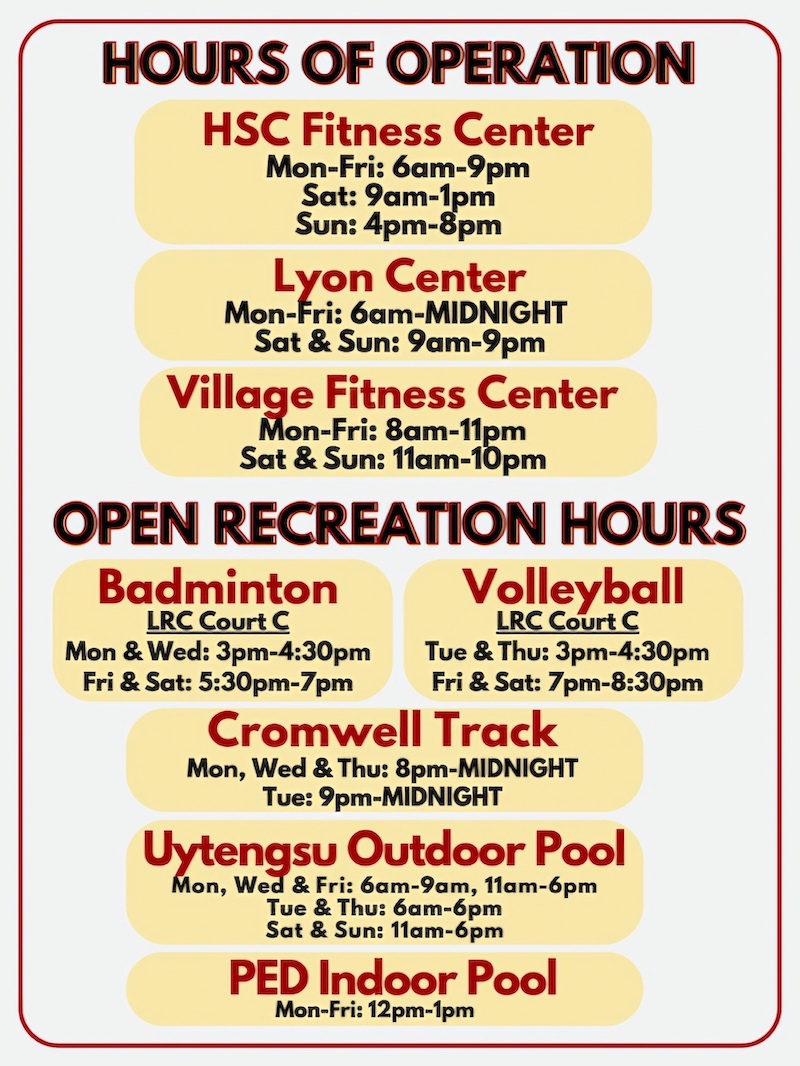
Farmer’s market at McCarthy Quad (UPC) or Pappas Quad (HSC)
At UPC, there is a farmer’s market with fresh produce, boxed foods, and jewelry most Wednesdays 11am-3pm. I believe HSC also has a farmer’s market most Wednesdays. These are great places to relax and hammock!
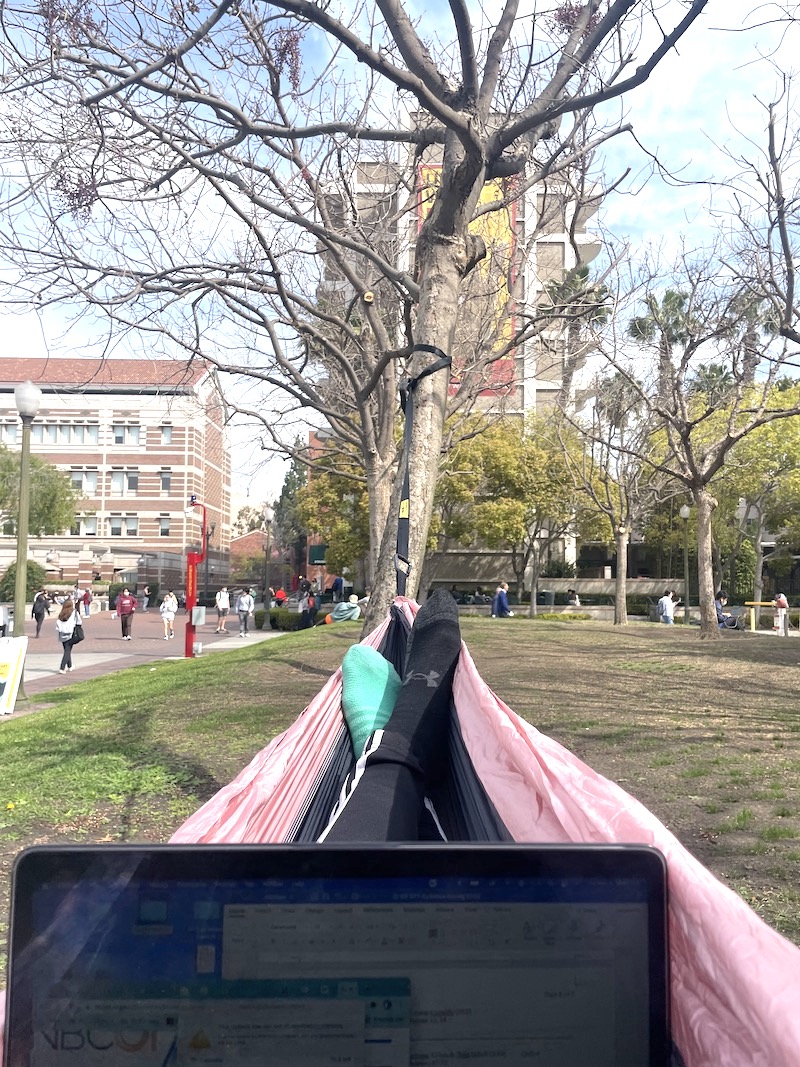
Rose Garden (UPC)
Near the USC Colosseum is a beautiful rose garden where you can take pictures or have a nice picnic. Close to the rose garden, there is also the natural history museum!
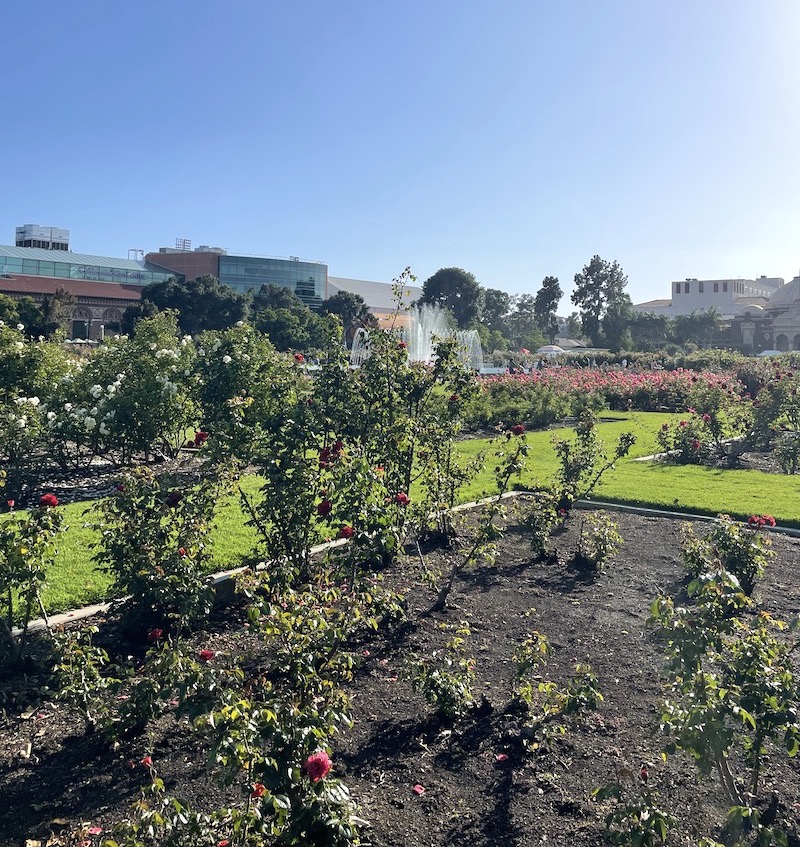
Have fun exploring!
⋯
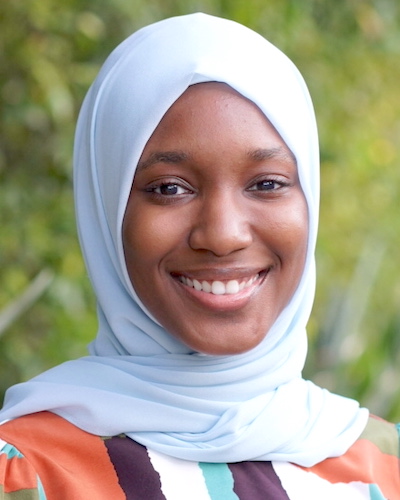
Hidden Gems and Resources ⟩
November 8, 2022, by Aisha
Life Hacks Living in LA School/Life Balance
Several resources and perks that come with being a USC student aren’t widely advertised. Here is a list of things I accidentally stumbled upon or heard by word of mouth that all students on the health sciences campus (HSC) should know about.
1. One Stop at HSC: Here, you can find discounted movie tickets, theme park tickets, and more! I love going to the movies with my friends and family, but as many of you know, movie tickets can be expensive in LA. At One Stop at HSC, you can purchase discounted movie tickets that don’t expire at Regal Cinemas, AMC Theatres, Cinemark Theatres, etc. My favorite is getting AMC tickets for $10.75 and going to the theater near Universal Studios, with comfy reclining seats!
2. Cheap food at the Keck Cafeteria: On the days you didn’t eat breakfast or pack a lunch, you can find affordable food at the Keck Cafeteria. You will need to show your student ID to enter the building. You can find the cafeteria on San Pablo St. near the Eric Cohen Student Health Center.
3. Farmers Market: Every Thursday, from around 10 am until 2 pm, there is a mini farmers market on the corner of Alcazar and San Pablo. Several vendors are selling fresh fruit, delicious food, and drinks such as pupusa, shawarma sandwiches, popcorn, and Aguas Frescas! I look forward to being on campus on Thursdays to get a tasty treat from the farmers market.
⋯





